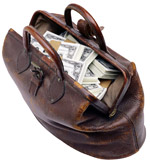Inflation continues growing in Armenia despite the efforts of the government to resist it. The prices of consumer products continue growing. According to the information recently published by the state statistics services, the consumer prices index in March of this year compared to March of the previous year was 111.5. It means that during the past twelve months the inflation rate was 11.5% in case when the authorities had promised to keep it within 4-6%.
The prices have grown by 0.8% compared to February of the last year, and compared to December 2010 by 5.2%. This is a record for the last 10 years. In March 2002 this rate was 0.9%, and the highest rate was registered in 2008 – 4.8%.
The prices of consumer products have grown more as during 12 months the prices have grown by 17.1%.
As the publication of the National Statistics Service writes, the growth of the consumer products prices was mostly conditioned by the growth of the prices of natural oils, sugar, coffee, tea, cacao, greens and potato by 1.3-3.3%. The prices of fruit have increased as well. During the past 12 months the prices of fruit have grown by 41.0%, the prices of meat – by 9.7%, and egg – by 13.2%. The living is becoming more and more difficult, especially for pensioners.
The prices of non-consumer products have grown as well. In March the prices of non-consumer products have grown by 0.5% compared to February, which was mostly conditioned by the 3.5% and 5.0% growth of the prices of diesel and benzene. The prices of diesel and benzene in March compared to the same period in 2011 have grown by 9.7% and 17.7% accordingly, and compared to December 2010 – by 10.8% and 13.3%.
If people feel bad or need to visit a doctor, they should think twice because the prices for medical services have grown as well (by 5.1%).
It would be wrong to say that the government does not do anything to fight the inflation. The Central Bank continues increasing the refinancing rate and is trying to take a large capacity of the national currency out of the circulation to keep in the reserves.
The government is reducing the budget expenses. In consideration of the fact that the growth of consumer products prices starts from agricultural products, the authorities have suddenly remembered the villages and agriculture sector and are taking measures to help farmers and villagers.
Even the state committee on protection of competition is showing signs of vitality as they have imposed penalties on the companies that have artificially raised the prices of egg. However, the problem is that this committee is punishing instead of preventing. Consumers do not benefit from it, and private companies do not learn lessons and this punishment does not mean anything for them.
Besides the state institutions, the large business companies are thinking of the vulnerable groups of the society as well. A message submitted by the ArmRusGazArd company at the government’s session on Thursday writes that for the period of April 2011 – March 2012 this company will charge less money for gas from the socially vulnerable groups of the society.
The prime minister says that over 60,000 families will enjoy the benefits of this decision as the president has ordered to compensate the price of gas for socially vulnerable groups of the society.
In a word, the authorities are trying to resist the inflation (or they are showing that they are trying to). If they succeed, it will be good, if no… anyway they will use this fact in their pre-election campaign next year. Because what matters is not the result but the wish.

